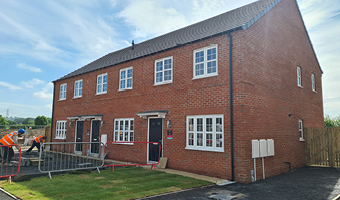The government originally announced the exemption on 05 December 2012 in the autumn statement, stating that the proposals were subject to a consultation.
What does this mean for commercial property developers?
- New-build commercial property developments completed between 01 October 2013 and 30 September 2016 are eligible for EPR relief for 18 months.
- The European Community State Aid rules limit the funding to €200,000 over three years.
- Central government will fund local authorities to provide 100% relief in the prescribed circumstances, capped by the EC State Aid limits.
- The proposals do not apply to existing office and retail property, which become liable to EPR after a three month void and industrial property after six months.
- At the end of the 18 month exemption period, the relief will end. If the property continues to be unoccupied, the rates will payable in accordance with local government regulations.
- The proposals apply to England only.
Will the EPR exemption stimulate commercial property development?
The policy is a step in the right direction but is unlikely to spur speculative development.
An 18 month EPR exemption for new developments is designed to stimulate construction by removing the unexpected rental void as a reason for not developing new grade A commercial space.
Commenting, Richard Wackett, Head of Business Rates at LSH said: “This 18 month exemption appears tentative, while a three year period of grace would invigorate the market, encouraging employment, stimulating growth and raising future tax revenues from VAT, Income Tax and Corporation Tax.”
The European Community State Aid rules limit the funding to €200,000 over three years, which will not stretch far enough to encourage large-scale developments, of which the costs would be much higher. Larger scale development viability has far more to do with confidence in the occupier market, and whether there is finance available.
EPR legislation irreparably damaged many businesses
Concluding, Richard said: “The EPR legislation, an unmitigated disaster since its introduction, has actively dampened the commercial property development market and irreparably damaged many businesses. The government needs to be much bolder and come down firmly on the side of enterprise and growth.”
The consultation closes on Friday 26 July 2013.
Get in touch

Email me direct
To:
REGISTER FOR UPDATES
Get the latest insight, event invites and commercial properties by email







